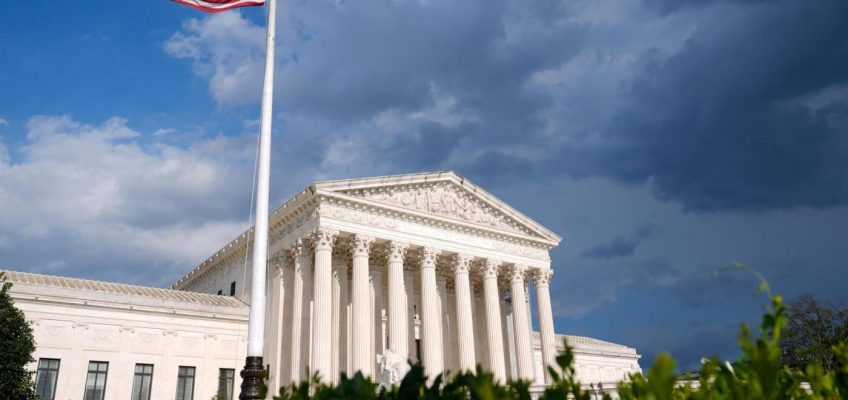By MARK SHERMAN, Associated Press
WASHINGTON (AP) — A 2018 Supreme Court decision opened the floodgates to legalized sports-betting industry, now worth billions of dollars a year, even as it recognized that the decision was controversial.
That high-court ruling is back in the spotlight after the arrests on Thursday of more than 30 people, including an NBA player and coach, in two cases alleging sprawling criminal schemes to rake in millions by rigging sports bets and poker games involving Mafia families.
What did the Supreme Court decide?
The court’s ruling struck down a 1992 federal law, the Professional and Amateur Sports Protection Act, that had barred betting on football, basketball, baseball and other sports in most states.
Justice Samuel Alito wrote in his majority opinion that the way Congress went about the gambling ban, barring states from authorizing sports betting, violated the Constitution’s Tenth Amendment, which protects the power of states.
“The legalization of sports gambling requires an important policy choice, but the choice is not ours to make,” Alito wrote. The court’s “job is to interpret the law Congress has enacted and decide whether it is consistent with the Constitution. PASPA is not.”
The trouble with the law, Alito explained, was that Congress did not make betting on sports a federal crime. Instead, it prohibited states from authorizing legalized gambling, improperly infringing on their authority. Chief Justice John Roberts and Justices Clarence Thomas, Anthony Kennedy, Neil Gorsuch and Elena Kagan joined Alito’s opinion.
Dissenting justices said the court should have acted more narrowly
Justice Ruth Bader Ginsburg wrote that even if the part of the law regulating the states’ behavior should be struck down, the rest of it should have survived. In particular, Ginsburg wrote that a separate provision that applied to private parties and betting schemes should have been left in place.
Writing for Justices Sonia Sotomayor and Stephen Breyer, Ginsburg said that when a portion of a law violates the Constitution, the court “ordinarily engages in a salvage rather than a demolition operation,” preserving what it can. She said that instead of using a “scalpel to trim the statute” her colleagues used “an axe.” Breyer agreed with the majority that part of the law must be struck down but said that should not have doomed the rest of the law.
But Alito, in his majority opinion, wrote that Congress did not contemplate treating the two provisions separately.
Opponents of gambling warned about corruption
Senator Bill Bradley of New Jersey, a former college and NBA star, was a sponsor of the law that he said was needed to protect against “the dangers of sports betting.”
All four major U.S. professional sports leagues and the NCAA had urged the court to uphold the federal law, saying a gambling expansion would hurt the integrity of their games. They also said that with legal sports betting in the United States, they’d have to spend a lot more money monitoring betting patterns and investigating suspicious activity.
Related Articles
Rubio tours US-led center in Israel overseeing the ceasefire in Gaza
Trump’s favorability has fallen among Hispanics since January, a new AP-NORC poll finds
DOJ prepares to send election monitors to California, New Jersey following requests from state GOPs
Ontario premier doesn’t back down against Trump, posts video of Reagan opposing tariffs
National Guard deployments in Washington, DC, and Portland, Oregon, are focus of court hearings
The Trump administration also called for the law to be upheld.
Alito acknowledged in his majority opinion “the legalization of sports gambling is a controversial subject,” in part for its potential to “corrupt professional and college sports.”
He included references to the “Black Sox Scandal,” the fixing of the 1919 World Series by members of the Chicago White Sox, and the point-shaving scandal of the early 1950s that rocked college basketball.
But ultimately, he wrote, Congress couldn’t require states to keep sports gambling prohibitions in place.


Leave a Reply